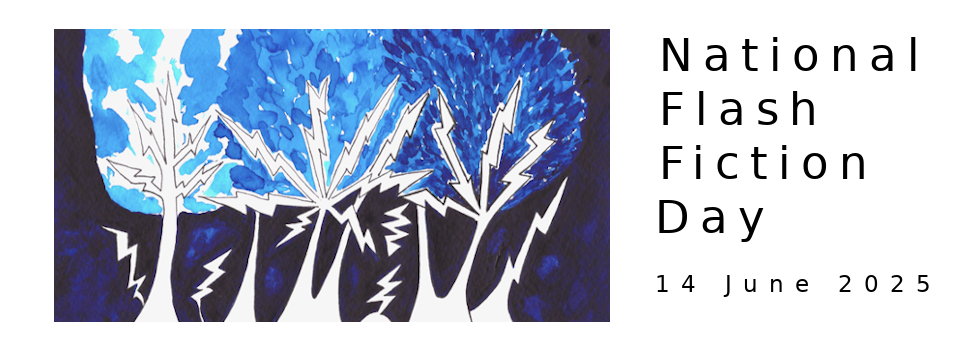This probably sounds familiar, but I’ve always wanted to write. Hopes of getting published someday, somehow? Check. One must be ambitious, and being a dreamer is inherent to a writer, right?
So I came across the term “flash fiction” this year. Not knowing what that was, I decided to investigate what on earth it meant. It turns out, flash fiction is just really short fiction. A short short story. A situation. A vignette. A small peek into something that might – or just as easily might not – grow into something bigger, like an actual short story or just a medium-sized story or even the full-length novel you’ve always dreamt of writing.
A piece of fiction of 500 words (or less)… That sounded like something I could actually manage. Better yet, it sounded like a challenge. Especially since the particular blog I’d found was this one, about to host Flash Flood day. It winked at me and said: go on, submit your flash fiction to us before this deadline, and we might just publish it right here! I tipped my imaginary hat and accepted.
I decided to give it a shot. Better still, I discovered that I had actually been writing flash fiction all along. Imagine that. I did a little happy dance when I realised it, because that also meant I was a writer all along. Hooray! Those pieces of paper, the notebooks with barely legible handwriting, the many documents that have been saved to my hard drive without any apparent purpose… I’d been writing flash fiction all along!
That realisation made it easier to open up one of those ghostly white new documents and fill it with words. No more than 500. And it turns out that flash fiction is the perfect vehicle to voice, jot down, safe keep and organise all those stray thoughts that are swimming around in a writer’s head literally all of the time. (I thought it was just me, by the way.)
A short conversation between two people that replays in your mind. An incomplete, otherwise fleeting thought, that might grow into a tale, once upon a time... Something that actually happened to you but that you’re more comfortable voicing when it comes out of a fictional character’s mouth. An observation that was too pretty to discard. The snippets of history you’ve already imagined hiding behind the lines and creases of cashier’s reassuring face when she helped you pick up the broken eggs after you dropped the carton. The hazy memories of a dream that cling almost imperceptibly to your waking consciousness, ready to let go.
They say that to be a writer is to write. No matter what. I say: try flash. It doesn’t demand that much of your precious time, and it’s a perfect way to hone your skills and be at it. To find the right combination of words to achieve the desired effect in as few words as possible. Or just to commit to paper what otherwise may have been forgotten.
